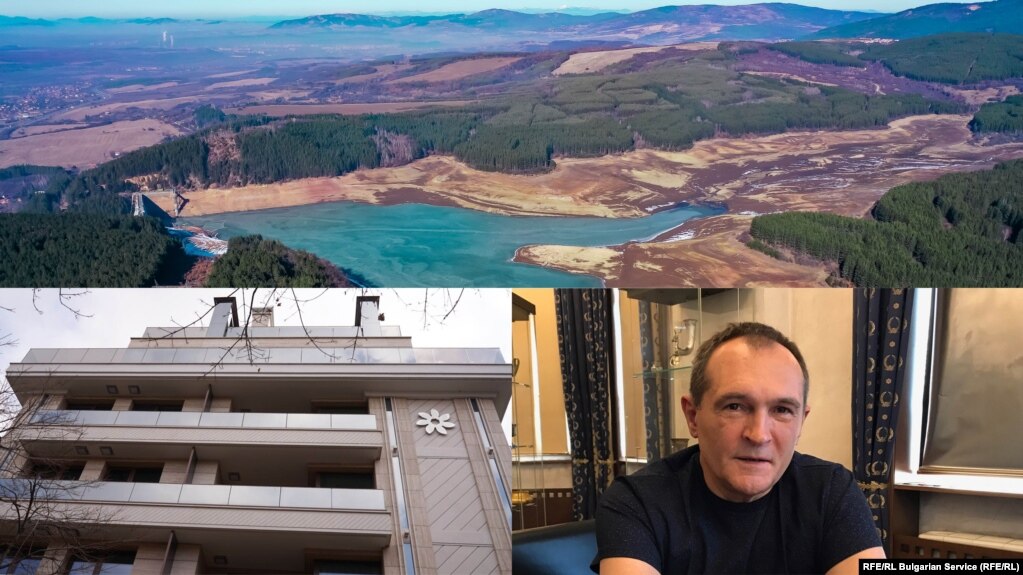RFE/RL’s Bulgarian Service, 1 Year Old, Hits Ground Running
One year since its launch in Bulgaria amid widespread media decline, Radio Free Europe/Radio Liberty’s (RFE/RL) Bulgarian Service has notched a series of high-profile investigations and eye-opening reports.

WASHINGTON, D.C. — One year since its launch in Bulgaria amid widespread media decline, Radio Free Europe/Radio Liberty’s (RFE/RL) Bulgarian Service has notched a series of high-profile investigations and eye-opening reports about corruption that have proclaimed its return and affirmed its mandate.
“We tried to do simple things — report the real news, ask questions. These are the basics of our job, but it may look exceptional in a media environment where political and economic pressure threatens professional journalism,” said Bulgarian Service Director Ivan Bedrov. “Bulgarians need real journalism and they are showing it — our readers and viewers are growing rapidly. We don’t support or attack any political group. We only report the news and help people understand what is going on,” he added.
After shutting its doors in 2004, the Service, known locally as Svobodna Evropa, returned in January 2019 with a high-impact team of journalists who have combined professionalism, innovation, and investigative expertise to produce dramatic results in just 12 months. The team secured its first major headlines in its initial weeks with a report published in partnership with the Anti-Corruption Fund disclosing suspiciously below-market luxury apartment sales to members of Bulgaria’s ruling GERB party. “Apartmentgate,” as the scandal became known, sparked an investigation by local prosecutors that led to the resignations of Bulgarian Justice Minister Tsetska Tsacheva, Deputy Sports Minister Vanya Koleva, Deputy Energy Minister Krassimir Parvanov, and member of parliament and Deputy GERB Chairman Tsvetan Tsvetanov.
More recently, the Service spurred scrutiny of Bulgaria’s gambling industry with an interview with the gaming “king” and billionaire Bulgarian oligarch Vasil Bozhkov. The interview, Bozhkov’s first in over a decade, was quoted across all major broadcast and online outlets and social media platforms in Bulgaria. Within hours after it aired, Bulgarian prosecutors searched the building housing the State Gambling Commission. The search yielded allegations of financial violations amounting to $210 million lev ($118 million) since 2014, and on January 29, prosecutors charged Bozhkov in absentia with extortion and attempted bribery.
Another high-impact report published by the Service in November revealed that Bulgaria’s Ministry of Environment and Water knew about, but failed to address, a water shortage in a reservoir near the capital that forced 100,000 residents to severely curtail their water use. The disclosures of negligence led Bulgarian prosecutors to charge the minister, Neno Dimov, with deliberately mismanaging the water supply.
Bulgaria ranks 74th out of 180 countries surveyed by the anti-corruption group Transparency International. Reporters Without Borders ranked the country 111th out of 180 countries in its 2019 World Press Freedom Index, noting that “corruption and collusion between media, politicians and oligarchs is widespread,” and that “journalism is now dangerous” because of increasing threats against reporters and judicial harassment of independent media.
For more information, contact press@rferl.org.
###
About RFE/RL
Radio Free Europe/Radio Liberty (RFE/RL) is a private, independent international news organization whose programs — radio, Internet, television, and mobile — reach influential audiences in 23 countries, including Russia, Ukraine, Iran, Afghanistan, Pakistan, the republics of Central Asia and the Caucasus. It is funded by the U.S. Congress through USAGM.